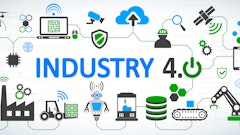
Sustainability still sells, even amid a pandemic, and continues to be the driving force behind many decisions. Case in point: Close to 72% of chief supply chain officers (CSCOs) surveyed expect their processes and workflows to be automated over the next 3-5 years, with 69% planning to accelerate cloud adoption, according to a study presented by IBM in cooperation with Celonis and Oxford Economics.
"The confluence of post-COVID-19 challenges, inflation and supply issues, security and sustainability has led to the most complex operating environment in modern business. This has forced organizations to rethink and rebuild their supply chains to be more agile, efficient and sustainable," says Jonathan Wright, managing partner, finance and supply chain transformation, IBM Consulting. "Technology and data-fueled automation and intelligence are key to not only evaluating current workflows and inefficiencies, but [also] in identifying new opportunities as well."
From IBM:
- The findings indicate that organizations are searching for ways to modernize their supply chains by embracing data and hybrid cloud strategies as well as prioritizing sustainability.
- 80% of CSCOs said that demand volatility is a top challenge, while 77% mentioned the increased cost of transportation and logistics.
- Cost aside, 76% cited the availability of transportation and logistics as a top challenge.
- 71% said lower inventory for raw materials and finished goods has led to stock-outs and lost sales. And 60% have had to expedite products for customers, leading to higher transportation costs.
- Almost nine in 10 (87%) CSCOs are implementing execution management and 77% implementing process and task mining to modernize their operations.
- By 2025, 83% of CSCOs plan to introduce AI-enabled real-time inventory management.
- 74% of CSCOs say hybrid cloud integration is crucial to accelerating and enabling the digital transformation of supply chains.
- 81% are looking to AI-enabled processes and workflows for real-time demand sensing.
- Some 72% expect most of their processes and workflows to be automated in the next three to five years, while 27% expect their workflows to be AI-enabled in the same timeframe – increasing to 33% by 2030.
- 66% of surveyed CSCOs said sustainability is a core element of overall business value. More than half (51%) of CSCOs surveyed said they would be willing to sacrifice profit—on average 5% to improve sustainability outcomes—equating to $22 billion for U.S. Fortune 500 companies in one year.
- 47% are initiating full lifecycle design of their materials and products to expand re-use of materials and reduce waste.
- 44% plan to improve energy efficiency of their products and services.
- 35% plan to develop new products and services based on renewable energy componentry, and 30% expect to engineer new zero-waste products and services.
- The Top 3 expected benefits of sustainability initiatives were complying with environmental regulation, reducing reputational risk and driving new innovation areas.
"Eliminating inefficiencies from core supply chain processes represents an enormous opportunity for reducing carbon emissions at scale," says Janina Nakladal, global director of sustainability at Celonis. "Chief Supply Chain Officers know they need to adapt, and in many cases are, but they often don't have the insight they need to truly understand where changes need to be made—and lack the toolset to drive the change. Our research shows that currently-available technology—process mining and hybrid clouds—can give CSCOs this insight to wholly transform their supply chains."




















